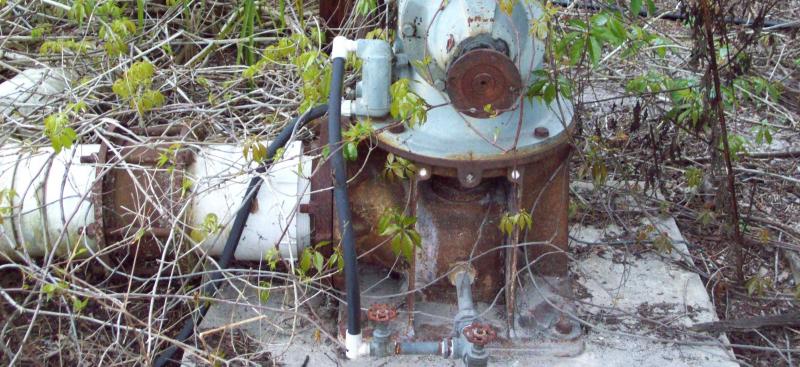Assisting the agricultural community by improving the quality of ground water used for irrigation.
Existing wells located in the District’s southern and coastal areas often exhibit water quality conditions that are more highly mineralized with increased well depths. The use of highly mineralized ground water for irrigation purposes can adversely affect both agricultural yields and the water quality of downstream receiving water bodies. Efforts to reduce mineralized conditions of these wells through the District’s Back-Plugging Program have been very successful with a total of 80 wells back-plugged to date.
In 2004, the Back-Plugging Program was initiated into the District’s Facilitating Agricultural Resource Management Systems (FARMS) Program, which is a cost-share reimbursement program to help implement water quality and water quantity best management practices (BMPs) in agriculture. While the FARMS Program is authorized to operate throughout the District, the Back-Plugging Program is available only in the Southern Water Use Caution Area (SWUCA). Within the lower region of the SWUCA, the Shell, Prairie and Joshua Creek (SPJC) watersheds have been a priority area for back-plugging, which is a primary tool of the SPJC Watersheds Management Plan. The program is primarily targeted at agricultural groundwater use, but is available to other user groups as well.
Back-plugging can be far more cost-effective than new well construction. The procedure generally involves filling a lower borehole interval with gravel, then capping the filled interval with a neat cement plug that is allowed to cure before pumping the well. The best back-plugging results have been for wells with more defined stratification characteristics and with initial groundwater conductivity values exceeding 2,000 μ/cm.
Experience has shown that well back-plugging procedures often result in immediate relief from adverse effects of highly mineralized ground water used for irrigation, with dramatic improvement to crop yields. Participating growers frequently report significant improvement to plant growth and crop yields due to reduced mineralization of irrigation water after back-plugging their wells. Importantly, continued back-plugging efforts will maintain higher water quality standards in the downstream watershed area and continue to facilitate agriculture with sustainable, high quality water resources.
Please contact SWFWMD FARMS staff for additional information about this program.

